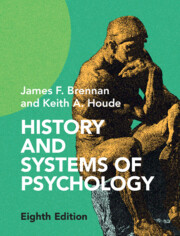
Scholars have looked to various possible explanations of our world, from the spiritual realm to physical nature, as well as internally to ourselves. As a species, our intellectual life over time seems progressively effective. That is, our cognitive and intellectual capabilities and achievements have improved, so that we seem better able to thrive within our environment and in our interactions. Although there have been noticeable exceptions to this trend, such as setbacks from wars, natural disasters, and disease, the progressive trend has been generally positive across the millennia.

Further, he suggested that the scientific achievements of post-Enlightenment Europe confirmed the move from the philosophical domain to what he called a positive, scientific domain.
From age to age, scholars invoked various explanatory vehicles to account for observations of our situation. For example, the nineteenth century philosopher, Auguste Comte, suggested that as our species improved across this progressive trend, initial theological explanations of our place in the universe gave way to philosophical explanations that rested on the rational foundations of our intellectual pursuits. Further, he suggested that the scientific achievements of post-Enlightenment Europe confirmed the move from the philosophical domain to what he called a positive, scientific domain.
Positive science is characterized by a reliance on empirical observation yielding evidence that appealed to a consensus among informed observers – that is, scientists. A variation of Comte’s positive domain proved attractive in the proposal by Thomas Kuhn who looked to paradigm shifts in scientific explanations, which progress because of improvements in scientific knowledge and methodology.
The history of psychology reveals its presence as an intellectual endeavor from the writings of the ancients, even if psychology’s presence was obscured by absorption within theological and philosophical explanations of ourselves and our world. Even as informally defined within theological and philosophical speculations, psychology quietly over time began to provide some answers to questions that had proven to be inadequate or incomplete by the parent domains of theology and philosophy.
As the modern natural sciences emerged during the European Renaissance and later Enlightenment, psychology joined in chipping away at the traditional domains. Indeed, this steady diminishing of theology/religion and philosophy since psychology’s formal statement as a science in the 1870s created an impression of polarities of tensions and competitions. These distinctions are sometimes expressed as dichotomies of science vs. faith, evidence vs. speculation, or rational demonstration vs. authoritative fiat. Setting aside for the moment whether these juxtapositions are necessary or even helpful, it is probably correct to assert that the success of the various scientific disciplines did serve to redefine the domains of theology and philosophy by constructive alternative explanations of ourselves and our world.
Scientific advances over the last 500 years have improved the lives of contemporary peoples throughout the world. The working lives of people, whether in developed economies or in those just developing, have improved through reduced tedium of labor, cures and control of diseases, lessened cases of infant mortality and extended life expectancy, and developed technologies that enrich our lives and entertain us. Yet, do all these successful additions to human existence really mean religion and speculative knowledge are on a path to extinction? This question is obviously overstated, but while the history of science teaches us valuable lessons about the efficacy of the various domains of knowledge, it is up to us to draw appropriate conclusions about the value of psychology and its sister sciences.

History and Systems of Psychology, Eighth edition
James F. Brennan & Keith A. Houde
Read That “Olde” Story: Faith and Reason Blog #2
Read Men, Masculinity, & Psychology Blog #3
Read Psychology’s Voice in Environmental Advocacy Blog #4
Read 2023 Retrospect: Emotions and Politics Blog #5
Latest Comments
Have your say!